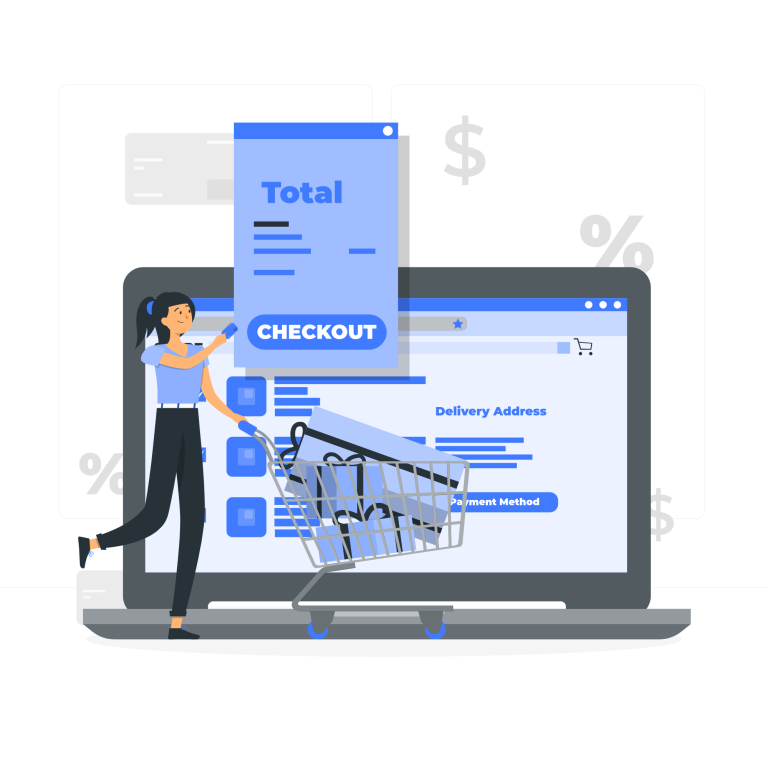Introduction:
In the age of digitalization, the way we shop has undergone a significant transformation. With the advent of e-commerce, the traditional brick-and-mortar retail model has been revolutionized. Consumers can now browse, purchase, and receive products or services with just a few clicks. In this blog post, we will explore the evolution of e-commerce and delve into the impact it has had on businesses and consumers worldwide.
The Rise of E-commerce:
E-commerce, short for electronic commerce, refers to the buying and selling of goods and services over the Internet. It gained momentum in the 1990s when technological advancements and the widespread adoption of the internet made online transactions feasible. Websites like Amazon and eBay played a pivotal role in popularizing e-commerce, providing consumers with an easy-to-use platform to shop from the comfort of their homes.
Convenience and Accessibility:
One of the key factors contributing to the success of e-commerce is the unparalleled convenience it offers. With e-commerce, consumers can shop anytime, anywhere, eliminating the constraints of physical store hours. The ability to browse a vast array of products, compare prices, read reviews, and make informed purchase decisions has empowered consumers like never before. Furthermore, the rise of mobile devices and the development of user-friendly mobile apps have made e-commerce even more accessible, enabling people to shop on the go.
Expanded Product Range and Global Reach:
Unlike traditional retail stores, e-commerce platforms are not limited by physical space. This has opened up opportunities for businesses to offer an extensive range of products and cater to niche markets. Additionally, e-commerce has eliminated geographical barriers, enabling businesses to reach customers across the globe. Small businesses and entrepreneurs can now establish an online presence and compete with established brands, fostering a more inclusive and competitive marketplace.
Personalization and Targeted Marketing:
E-commerce has revolutionized the way businesses understand and engage with their customers. Through data analytics and tracking tools, companies can gather valuable insights into consumer behavior, preferences, and buying patterns. This wealth of information allows businesses to personalize the shopping experience, recommend relevant products, and deliver targeted marketing campaigns. By understanding their customers better, businesses can forge stronger connections and build loyalty in the digital realm.
Logistics and Fulfillment:
Efficient logistics and order fulfillment are critical components of successful e-commerce operations. To meet customer expectations, businesses have invested heavily in optimizing their supply chains, warehousing, and delivery systems. Companies now offer various delivery options, including same-day or next-day delivery, and even drone deliveries in some cases. Additionally, e-commerce platforms have partnered with logistics providers to streamline the shipping process, ensuring timely and secure delivery of products to customers.
Challenges and Future Trends:
While e-commerce has undeniably transformed the retail landscape, it is not without its challenges. Cybersecurity, data privacy, and counterfeit products remain concerns that need to be addressed. Moreover, the rise of e-commerce has led to job displacement in traditional retail sectors. However, with ongoing technological advancements, we can expect e-commerce to continue evolving. Augmented reality (AR) and virtual reality (VR) technologies may enhance the online shopping experience, while artificial intelligence (AI) and machine learning (ML) can further personalize product recommendations and streamline logistics.
Conclusion:
E-commerce has reshaped the way we shop, offering unparalleled convenience, expanded choices, and personalized experiences. It has empowered businesses, big and small, to reach a global audience and compete in the digital realm. While challenges exist, the future of e-commerce looks promising, with emerging technologies poised to enhance the shopping experience even further. As consumers embrace the benefits of e-commerce, it is clear that online shopping is here to stay, transforming the retail landscape for years to come.
Online illustrations by Storyset



